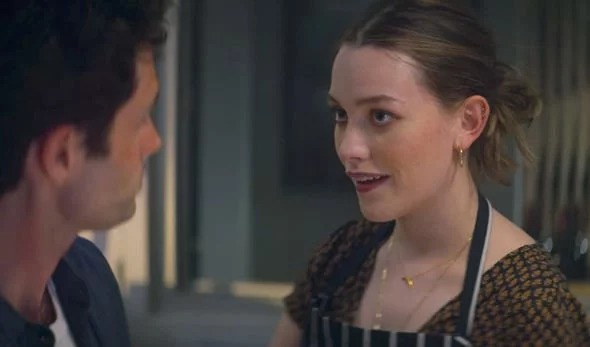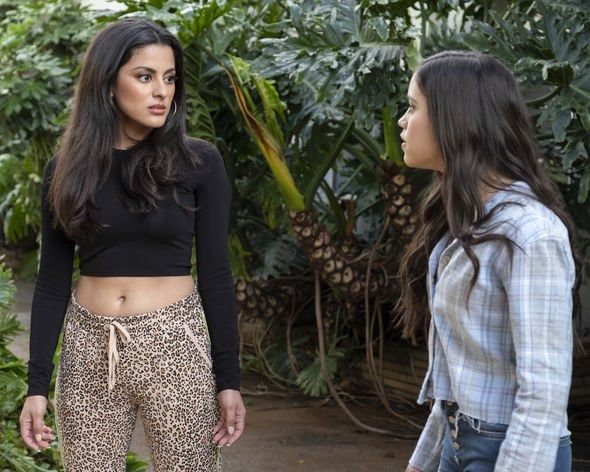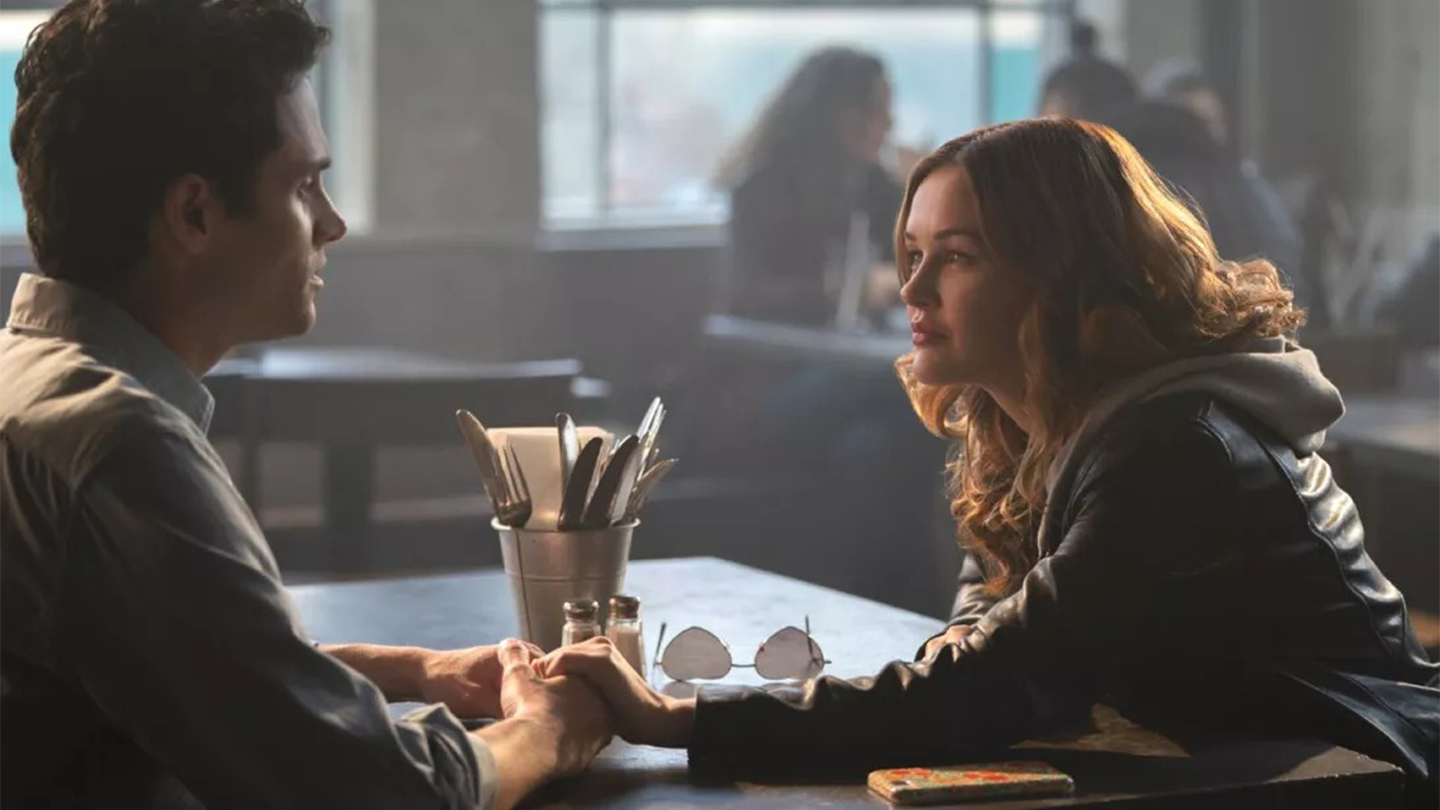On the surface, the second season of Netflix’s cyber-stalker thriller You looks like it’ll play out in a similar way to its predecessor: Joe Goldberg (here going by the name of Will Bettelheim in an attempt to outrun his past) meets a girl, becomes infatuated with her, and, as he does more to try and ingratiate himself into her life, makes decisions that are darker and more extreme, revealing the possessive, violent side that he tries to keep hidden. Fortunately, You has clearly done some growing up in between seasons one and two; not only does it give Joe more depth and complexity, but the supporting cast that surrounds him offers a very real way to look at the consequences of the actions of Joe, and other violent men like him.
Part of this comes from the ways in which the second season incorporates Candace, an ex of Joe’s who he tried and failed to kill — by burying her alive — after finding out that she was cheating on him. Her return is motivated by a desire to see Joe realise that he’s a fundamentally evil person, in spite of the fact he tries to “be a better man”, like a kind of murderous version of Jack Nicholson in As Good As It Gets. But the more time the show spends with Candace — who herself adopts a false identity in order to stay close to Joe — the more it highlights the traumatic repercussions of Joe’s actions.
In flashbacks reflecting the very real effects of PTSD, the audience sees Candace try to report what happened to the police, only to be dismissed as the token “crazy ex-girlfriend”. The power of moments like this comes from the fact that the show doesn’t try to challenge or undercut them, they allow these characters the space they need to articulate the traumatic experiences that they’ve been through. Later, when Candace confronts Joe and he tries to tell her his side of the story, she explicitly says that he’s gaslighting her — a reminder that we, the audience, also shouldn’t be gaslit into believing Joe and men like him are misunderstood or acting out of love.

You has always been a show that forces the audience to spend a lot of time getting intimately acquainted with a terrible person, but fortunately, it never allows its perspective to taint the morality of the show. Instead, it illustrates a keen understanding of the fact that spending time with Joe doesn’t mean seeing things the same way that he does, or forgiving his actions. The issue of Joe’s morality is a tightrope that this season often walks, revealing more of his childhood and how his need for love and violent tendencies came to the fore. But crucially, these scenes are never used to excuse Joe’s behaviour. If anything, the show is more sympathetic to those left in his wake than it is to the man himself.
One of the greatest strengths of the second season of You is that it continues to expand the world outside of Joe Goldberg, and often does this through its female characters. Delilah, who rents Joe’s apartment to him in LA, might be called a “jaded gossip columnist” by Joe, but she serves as one of the strongest characters in the show, and one of the best examples of how the show has grown, and her storyline serves as an exploration not just of trauma, but of strength.
Henderson, a sleazy standup comic, has a thing for underage girls, and through the first few episodes of the season, it seems like his next victim will be Ellie, Delilah’s fifteen-year-old sister. In spite of the fact that she’s at risk of becoming a victim, or a morality pet for Joe, she’s never reduced to simply being those things; she’s given a life and voice of her own. The Henderson storyline might seem at first glance to be a case of You chasing the headlines, and using the #MeToo movement to try and stay relevant, but in reality the show explores our present moment with empathy for the victims of sexual assault.

The storyline allows us to see Delilah — a character that is fully fleshed out from her source material as a background conquest for the protagonist in Hidden Bodies, the book upon which series is based — working through her trauma with nuance and sensitivity. The audience are also able to see the repercussions of abuse rarely discussed, as Delilah worries about the kind of dangerous backlash whistleblowers and victims can receive from a misogynistic world. Delilah receives death threats from fanatical fans of Henderson (using the language “I am Henderson” in a show of twisted solidarity), a reminder of how unfair and unforgiving the world can be to victims and survivors of sexual assault.
Given how much time the viewers of You spend being charmed and won over by Joe, it’s easy to feel like you’re on his side, only stopping to check yourself on this after the fact. The misconceptions over the character have even led for the actor who portrays him, Penn Badgley, to remind fans online that they should not be rooting for Joe Goldberg. But in expanding the cast of the second season the way that it has, the show is able to acknowledge not only the reality of a life turned upside-down by predators, but also how those predators function. By having Joe confront both his past and the reality of his actions, the dark side of his personality that he tries to keep in check is held to account, and the women who have become victims of that darkness are given the space to acknowledge what they’ve been through.
The women of You contain multitudes in a way that wasn’t quite so true in season one, where Beck, the main female character, existed as a kind of blank slate that Joe projected his fantasies onto (something he’s accused of doing in the climax of season two as well). Now, You refuses to allow Joe to settle for a fantasy. Now, the show is dealing with reality, and all of the ugliness and unfairness that comes with it, creating a cast of female characters who are angry, frustrated, fed up, afraid, independent, and full of life, making the show even better by challenging the actions of abusers, and reminding the audience of the darkness that lurks underneath Joe’s seduction.
